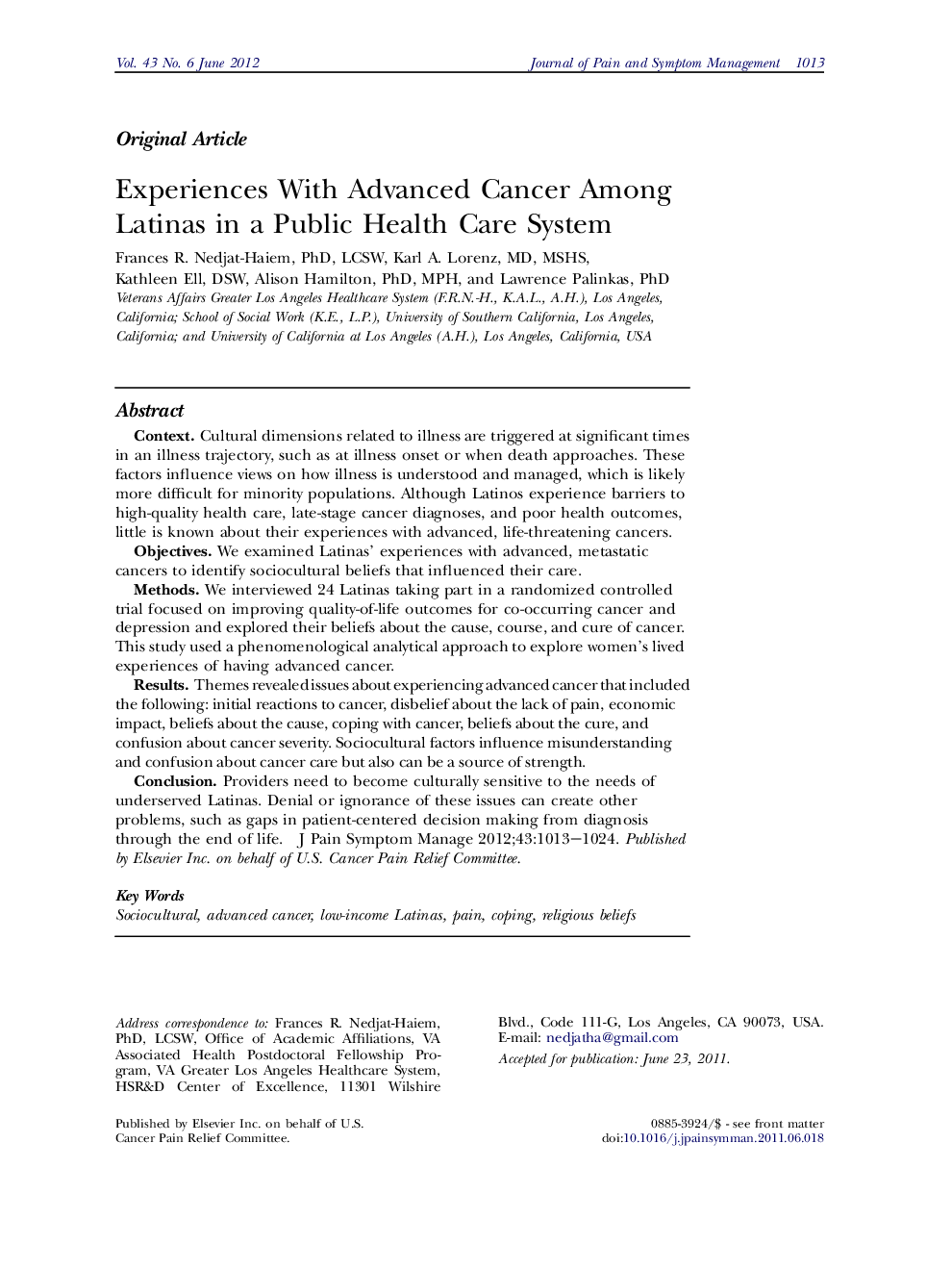| Article ID | Journal | Published Year | Pages | File Type |
|---|---|---|---|---|
| 2729808 | Journal of Pain and Symptom Management | 2012 | 12 Pages |
ContextCultural dimensions related to illness are triggered at significant times in an illness trajectory, such as at illness onset or when death approaches. These factors influence views on how illness is understood and managed, which is likely more difficult for minority populations. Although Latinos experience barriers to high-quality health care, late-stage cancer diagnoses, and poor health outcomes, little is known about their experiences with advanced, life-threatening cancers.ObjectivesWe examined Latinas’ experiences with advanced, metastatic cancers to identify sociocultural beliefs that influenced their care.MethodsWe interviewed 24 Latinas taking part in a randomized controlled trial focused on improving quality-of-life outcomes for co-occurring cancer and depression and explored their beliefs about the cause, course, and cure of cancer. This study used a phenomenological analytical approach to explore women’s lived experiences of having advanced cancer.ResultsThemes revealed issues about experiencing advanced cancer that included the following: initial reactions to cancer, disbelief about the lack of pain, economic impact, beliefs about the cause, coping with cancer, beliefs about the cure, and confusion about cancer severity. Sociocultural factors influence misunderstanding and confusion about cancer care but also can be a source of strength.ConclusionProviders need to become culturally sensitive to the needs of underserved Latinas. Denial or ignorance of these issues can create other problems, such as gaps in patient-centered decision making from diagnosis through the end of life.
